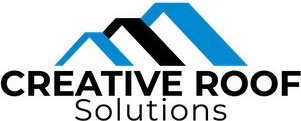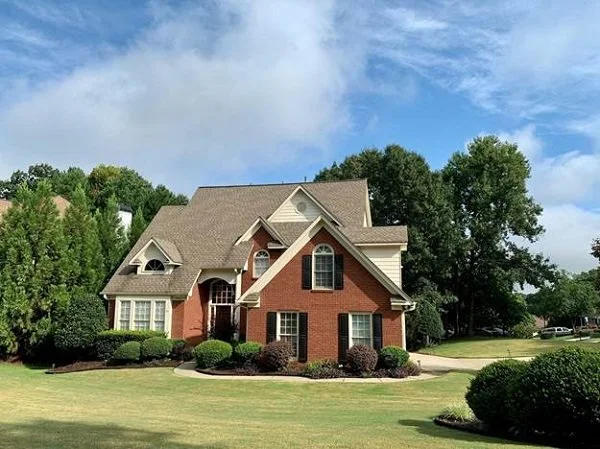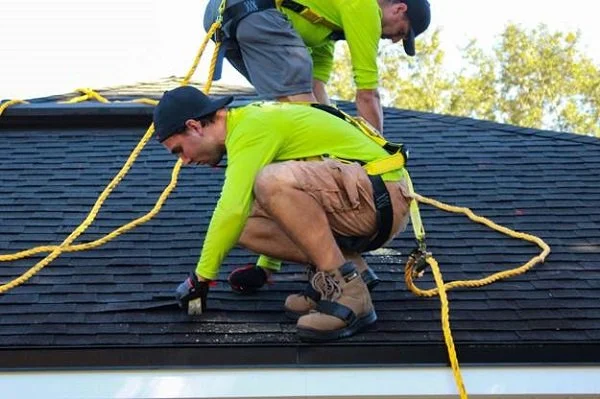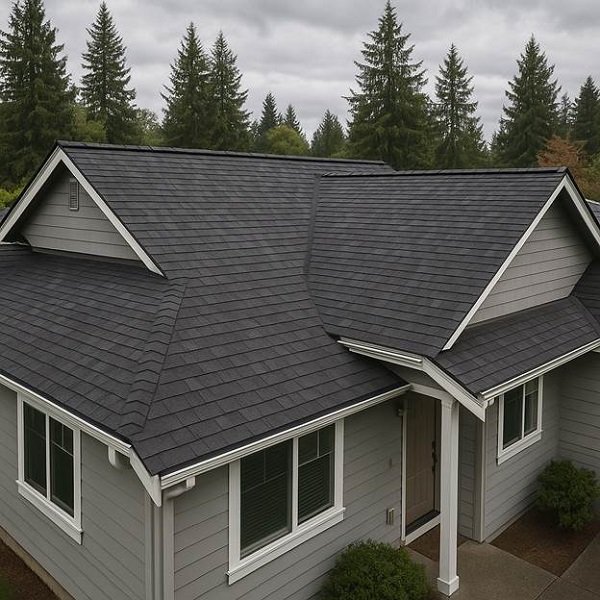Roofing Scams: A Guide to Protect Your Home
A knock on the door after a major storm. A contractor offering a price that seems too good to be true. These are common scenarios that can lead Washington homeowners into costly and stressful situations. While the majority of roofing professionals are honest, the industry is not immune to fraudulent actors. In fact, roofing projects are the most frequently cited issue in home improvement scams reported to the Federal Trade Commission (FTC).
Protecting your home, one of your most significant assets, starts with knowledge. This guide is designed to arm you with the information needed to identify common roofing scams, spot the warning signs of an unqualified contractor, and confidently select a reputable professional for your project.
Table of Contents
The Most Common Roofing Scams
Awareness is your first line of defense. Understanding the common tactics used by fraudulent contractors can help you recognize a scheme before it starts.
Storm Chasers: The Post-Storm Predators
After a severe weather event in Snohomish or King County, you may see an influx of out-of-town contractors. These "storm chasers" travel to disaster areas to capitalize on the high demand for repairs. They often perform substandard work, use low-quality materials, and are gone before any warranty issues appear, leaving homeowners with no recourse.
The "Too Good to Be True" Low Bid
An unusually low bid is a significant roofing contractor red flag. Scammers may use a low initial price to secure a job, only to inflate the final cost with unforeseen "issues" or use inferior materials that will fail prematurely. A quality roofing project, whether for a residential or commercial property, requires a realistic budget for materials and skilled labor.
High-Pressure Sales Tactics
A reputable contractor will provide a detailed estimate and give you time to consider it. Scammers, however, often create a false sense of urgency. They might pressure you to sign a contract on the spot by claiming it's a "limited-time offer" or that your roof is in imminent danger of collapse.
Insurance Fraud: The Deductible Ploy
A contractor who offers to waive or absorb your insurance deductible is proposing to commit insurance fraud. As the National Insurance Crime Bureau (NICB) warns, this practice is illegal. This scheme involves the contractor billing the insurance company for the waived amount, which inflates the claim and is a serious offense.
The Disappearing Down Payment
This is one of the most brazen roofing scams. A "contractor" demands a large upfront payment, often in cash, to cover materials or secure a spot on their schedule. Once they have your money, they disappear without ever starting the work.
Mystery Damage: Fabricated Repairs
Some unscrupulous individuals will create damage themselves to justify a repair or replacement. They might pull up shingles or dent vents during a "free inspection" and then present it as storm damage. Always be wary of damage you cannot see or that appears suddenly after an inspection.
The Red Flags: A Checklist of Warning Signs
Keep this checklist handy when speaking with potential contractors. The presence of even one of these signs should prompt further investigation.
Unsolicited Contact: Be cautious of anyone who shows up unannounced offering a free inspection, especially after a storm.
No Local Presence: They lack a permanent physical address in Washington, use a P.O. box, or have unmarked vehicles.
Pressure to Sign: They push you to make a decision immediately.
Large Upfront Payment: They demand a significant down payment, especially in cash. A typical deposit is 10-20% of the total project cost.
Vague Contracts: The contract lacks specific details about materials, labor, costs, and project timelines.
Refusal to Provide Credentials: They cannot or will not provide proof of a Washington contractor's license, liability insurance, and workers' compensation.
"Leftover Materials" Deal: They claim to have extra materials from a nearby job and offer a deep discount. Quality materials are ordered per job.
Protecting Our Seniors from Roofing Fraud
Scammers disproportionately target older adults. These criminals often use tactics designed to create confusion, urgency, and fear to secure a quick payout.
Why Scammers Target Older Homeowners
Perpetrators often assume seniors are more trusting, may have accumulated savings, and might be less likely to report fraud due to embarrassment. They prey on politeness and a potential lack of familiarity with current business practices, making high-pressure tactics more effective.
How to Help Protect Your Family Members
If you have an older parent or relative, be an active part of their decision-making process for major home repairs.
Offer to Help: Let them know you can help vet contractors and review estimates.
Check In: After major storms, call and remind them to be cautious of unsolicited offers.
Advise Against On-the-Spot Decisions: Remind them that they should never feel pressured to sign a contract or pay for services immediately.
Promote Local: Encourage them to work with established, local companies with deep community roots and verifiable reputations.
Your Defense: How to Hire a Reputable Contractor
Avoiding roofing scams is about proactive verification. A trustworthy contractor will welcome your due diligence.
The Vetting Process: A Step-by-Step Guide
Verify Licensing and Insurance
In Washington, contractors must be registered with the Department of Labor & Industries. Ask for their license number and verify it online. Also, request a certificate of insurance for both general liability and workers' compensation. This protects you if a worker is injured on your property.
Examine Online Presence and Reviews
A professional company will have a comprehensive website detailing its services, like shingle roofing and metal roofing, and showcasing its work. Look for reviews on Google, the Better Business Bureau (BBB), and other third-party sites.
Obtain Multiple Written Estimates
Get at least three detailed, written estimates. This allows you to compare pricing, scope of work, and the proposed materials. An estimate should be a professional document, not a number scribbled on a business card.
Check References Thoroughly
Ask for a list of recent local customers and contact them. Inquire about their experience with the crew, the quality of the work, and whether the project was completed on time and on budget.
Insist on a Detailed, Written Contract
Never proceed without a signed contract. A legitimate agreement is your best protection.
Elements of a Legitimate Roofing Contract
Your contract should clearly state:
Full company name, address, phone number, and license number.
A detailed scope of work, including tear-off and clean-up procedures.
The specific materials to be used (brand, type, color), referencing your material choices.
Start and estimated completion dates.
A clear payment schedule.
Details on warranties for both materials and workmanship.
What to Do If You Suspect a Scam
If a contractor's behavior raises roofing contractor red flags, take immediate action.
Do not sign anything or hand over any money.
End the conversation. You are not obligated to listen to a sales pitch.
Document everything. Write down the company name, license plate number, and a description of the individual.
Report them. File a complaint with the Washington State Attorney General's Office, the BBB, and your local police department if you feel threatened.
Frequently Asked Questions
Q: How much of a down payment is normal for a roofing project?
A: A reputable contractor will typically ask for a deposit of 10-30% to cover initial material costs. Be extremely wary of any request for more than one-third of the project cost upfront or a demand for payment in cash.
Q: Is it legal for a roofer to cover my insurance deductible?
A: No. A contractor offering to waive or cover your insurance deductible is asking you to participate in insurance fraud, which is illegal. This is a major red flag indicating a dishonest operator.
Q: What should I do if a contractor shows up at my door uninvited?
A: Be polite but firm. Ask for their business card and Washington contractor license number. Never let an unsolicited visitor onto your roof or into your home. Inform them you will do your own research and contact them if interested.
Partner with a Trusted Local Expert
Your home is your sanctuary, and its roof is the primary shield against the elements. Choosing a roofing partner is a decision that impacts your property's safety and value for decades. The key to avoiding roofing scams is to prioritize diligence, demand transparency, and work with local professionals who have a vested interest in the community. Companies built on values of honesty, safety, and communication will always provide clear contracts, verifiable credentials, and exceptional results.
Protect your investment with a partner you can trust. If you're in Snohomish, Skagit, or King County, contact Creative Roof Solutions today for a transparent, no-pressure assessment of your roofing needs.




